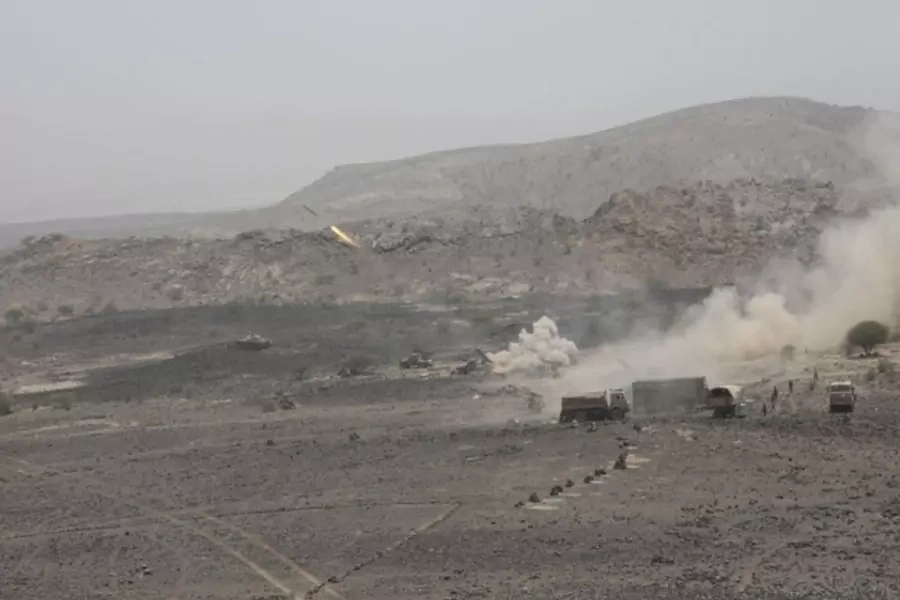You Might Have Missed: Drone Strikes, Threat Inflation, and Iran’s Military Power

More on:
Rebecca Hamilton, “Special Report: The Wonks Who Sold Washington on South Sudan,” Reuters, July 11, 2012.
They called themselves the Council and gave each other clannish nicknames: the Emperor, the Deputy Emperor, the Spear Carrier. The unlikely fellowship included an Ethiopian refugee to America, an English-lit professor and a former Carter administration official who once sported a ponytail.
The Council is little known in Washington or in Africa itself. But its quiet cajoling over nearly three decades helped South Sudan win its independence one year ago this week.
Across successive U.S. administrations, they smoothed the path of southern Sudanese rebels in Washington, influenced legislation in Congress, and used their positions to shape foreign policy in favor of Sudan’s southern rebels, often with scant regard for U.S. government protocol.
Paul West, “Romney, Echoing Senator Rubio, Sees Venezuelan Threat to U.S. Security,” Los Angeles Times, July 11, 2012.
“The idea that this nation, that this president, doesn’t pose a national security threat to this country is simply naïve. It’s an extraordinary admission on the part of this president to be completely out of touch with what is happening in Latin America… This is a very misguided and misdirected thought,” he said.
(3PA: According to the Congressional Budget Office, the United States spends $699 billion on defense annually, whereas Venezuela spends $3.3 billion. For more on Romney’s history of threat inflation, click here.)
Sara Sorcher, “Insiders: Drones Strikes Right Approach in Current Phase of War on Terror,” National Journal, July 9, 2012.
Two-thirds of National Journal’s National Security Insiders believe that the Obama administration’s increasing use of drone strikes to kill terrorism suspects overseas is the right approach—but many cautioned that Washington should not overuse the tactic.
“The drone strike tactic…cuts both ways. Kills terrorists and infrastructure but reinforces view of some that U.S. is at war with Islam,” said one Insider who supports the accelerated use of drone strikes targeting militants in countries including Afghanistan, Pakistan, Yemen, and Somalia. “[We] need to develop local allies to fight and control territory." Another added: “It is right but insufficient. Whack-a-mole only goes so far."
Tom Junod, “The Lethal Presidency of Barack Obama,” Esquire, July 9, 2012.
Paul Schemm, “Officials: Feared Al-Qaida Offshoot Neutralized,” Associated Press, July 9, 2012.
Six years after joining the Osama bin Laden franchise, al-Qaida in the Islamic Maghreb — known by its acronym AQIM — appears to have been neutralized in the nation where it originated and made its name, officials and experts say, corralled into a remote mountain area and reduced to occasional pinprick shootings against soldiers. Most experts agree there remain just a few hundred combatants holed up in Algeria’s Kabylie mountains.
Steve Chapman, “The Arms Race That Won’t Happen,” Chicago Tribune, July 8, 2012.
Nuclear proliferation is always said to be on the verge of suddenly accelerating, and somehow it never does. In 1981, there were five declared nuclear powers — the U.S., the Soviet Union, China, Britain and France — as well as Israel, which was (and is) undeclared.
And today? The number of members added since then is not 15 but three: India, Pakistan and North Korea. Most of the other countries on the list of likely proliferators never came close — including Argentina, Chile, Morocco and Tunisia. Iraq tried and failed. Libya made an effort and then chose to give up.
The peril was greatly overblown. It probably is again. But our leaders are not about to let mere history debunk the apocalyptic scenarios. They are committed to a policy based on fear rather than experience.
Kelly McEvers, “Yemen Airstrikes Punish Militants and Civilians,” National Public Radio, July 6, 2012.
In the escalating air war in Yemen, it’s extremely difficult to figure out who is responsible for any given strike. There are four possibilities: It could be a manned plane from the Yemeni Air Force or the U.S. military. Or it could be an unmanned drone flown by the U.S. military or the CIA.
All are being used in the fight against al-Qaida and other militant groups in Yemen. But no matter who launches a particular strike, Yemenis are likely to blame it on the Americans. What’s more, we found that many more civilians are being killed than officials acknowledge.
Neither the Yemeni government nor the U.S. military will say much about the strikes. When asked about this story, a Pentagon spokesman, Lt. Col. Jack Miller, said, "While we acknowledge that the U.S. conducts targeted strikes against al-Qaida terrorists, we cannot confirm specific counterterrorism operations. We take great care to avoid civilian casualties. Our counterterrorism operations are precise, lawful and effective."
The Yemeni government does acknowledge its role in airstrikes, though it typically provides only limited and piecemeal information. The casualty figures given by the government are often lower than those that residents or journalists find at the scene of attacks, particularly when it comes to civilian casualties.
Carlo Munoz, “Report: Pakistan Pushes for Control of U.S. Drone Strikes,” The Hill, July 6, 2012.
Specifically, Pakistan is asking for control over the human intelligence assets inside the country that pinpoint locations and targets for American drones, according to the official. Granting Pakistani officials that kind of authority would essentially allow Islamabad to dictate which targets U.S. military and intelligence forces can hit inside the country.
Department of Defense, Annual Report on Military Power of Iran (PDF), April 2012.
More on:
 Online Store
Online Store